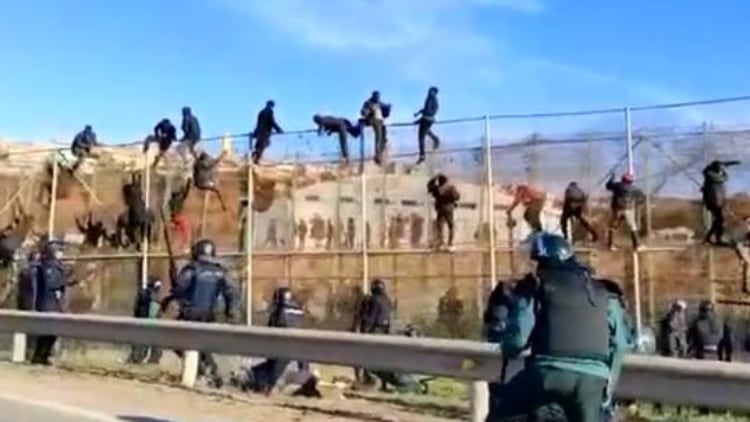The Diplomat
The National Human Rights Council (CNDH), a commission under the Moroccan government, yesterday questioned the role of the Spanish authorities following the massive attempt by more than 2,000 sub-Saharan Africans to cross the Melilla fence on 24 June, arguing that they “hesitated” to provide “the necessary assistance and aid” to prevent an increase in violence.
he final report drawn up by the commission, chaired by Amina Bouayach and Mounir Bensalá, both appointed by King Mohammed VI of Morocco, puts the number of dead at 23 and the number of injured at 217, of whom 140 are police officers and 77 migrants, mostly from Sudan and Chad. They had all arrived in Morocco via Libya and Algeria.
The CNDH thus indicates that the acts of violence took place due to the inaction of the Spanish authorities “despite the pushing and shoving of migrants in front of the gates which remained hermetically sealed” and whose “most likely” consequence was to “increase the number of deaths and injuries”.
The entity also considers that the deaths registered during the attempted assault in front of the border crossing between Melilla and the Moroccan city of Nador were caused by “mechanical asphyxiation” due to the pushing and shoving and the agglutination of a large number of people, according to the Moroccan newspaper ‘Le Matin’, reported by Europa Press.
The commission, however, has not been able to determine whether the origin of the injuries of some migrants were the result of the falls and pushes suffered or, however, injuries resulting from a disproportionate use of force.
The CNDH, which has conducted numerous interviews with local authorities, non-governmental associations and affected migrants, further concludes that “bullets were not used” at any time and that the security forces used truncheons and tear gas.
Response from the Interior Ministry
The Spanish Interior Ministry defended, after learning of the CNDH report, that it acted with “criteria of proportionality and full respect for human rights”.
Sources from the department headed by Fernando Grande-Marlaska did not enter into an assessment of the claims made by the aforementioned body, but defended that the Guardia Civil acted “at all times within the national and international legal framework” and always “with criteria of proportionality and full respect for human rights, without any type of action contrary to them being attributed to any of the agents”.







